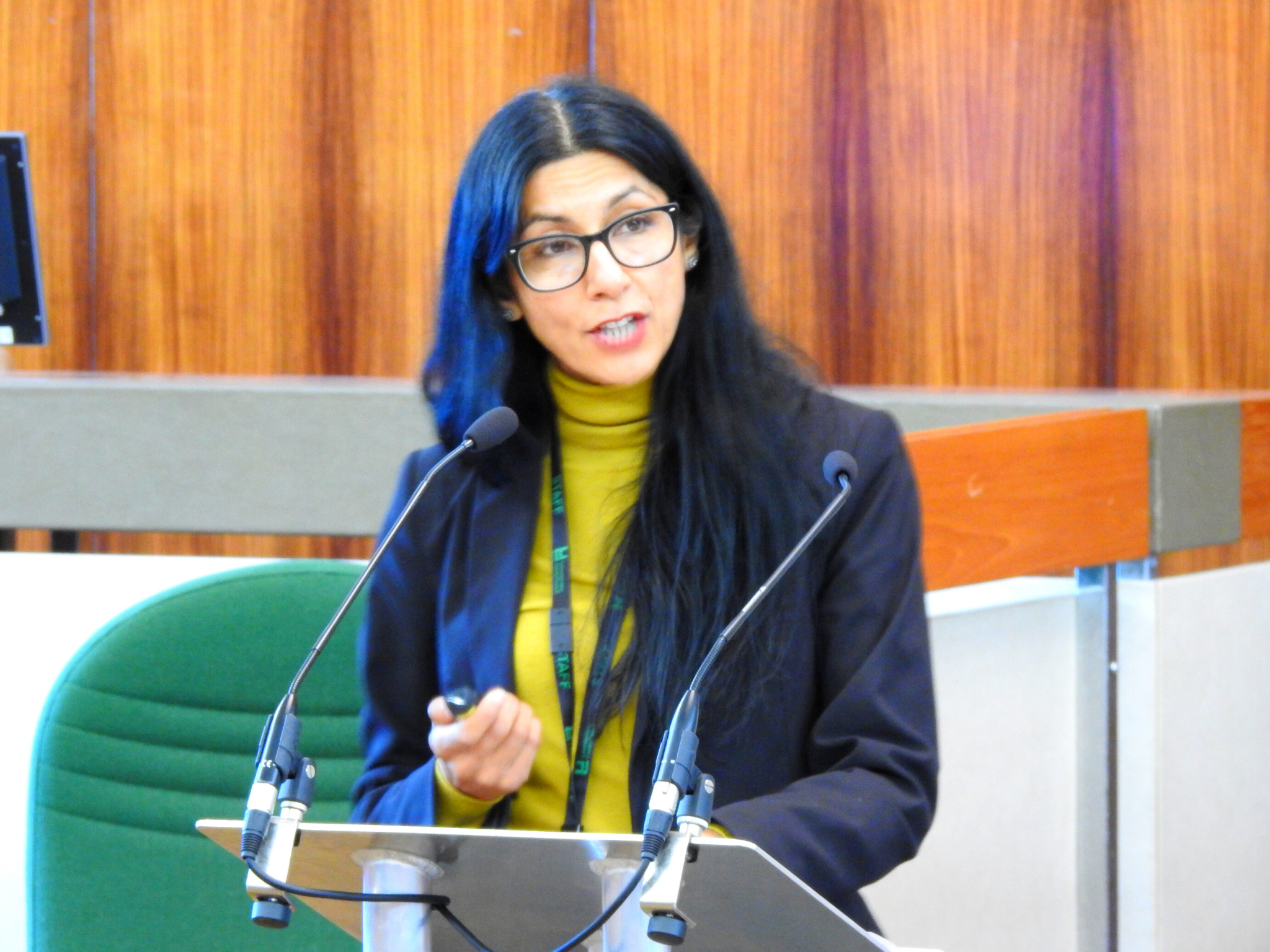My ATS experience: Sarabjit Borrill
What motivated you to undertake Advanced Teacher Status (ATS)?
Having completed the SUNCETT MA Certificate in Advancing Pedagogy in Post Compulsory Education and Training with Sunderland University, I wanted to continue my research into the ways in which teachers understand their own practice, which included using video technology for reflection.
ATS’s quality improvement project was a great vehicle for this action research, as it would allow me to carry out my inquiry in a structured way, with organisational support, and I would be able to share the results with the sector. Moreover, I knew ATS would provide an opportunity to think much more critically about my own practice, develop the skills and knowledge needed to enhance it, and therefore support my organisation through sharing up-to-date, evidence-informed ideas.

Can you tell us more about the research project that you undertook as part of ATS?
My research project was titled ‘Let me think for myself: becoming a reflective teacher’. The rationale for the inquiry was that teachers working to the sector’s professional standards are required to be reflective and enquiring practitioners. However, often there is little or no structured support available to teaching staff to carry out effective reflection. Critical reflection is a central tenet for teacher learning and therefore I thought it would be a useful project for the organisation and more widely for the sector.
I devised a workshop on critical reflection for teachers which included the personal use of a recording of their classroom practice. This recording would help the teacher to reflect on an aspect of their own practice – what they felt was an important focus for professional learning – for them and their learners.
In the workshop, we considered models of reflection, the different lenses that practice could be viewed from, the importance of having focus areas, and value of pedagogical knowledge and skill.
Some themes emerged from this action research. Firstly, video can be used to support reflective practice but the recording could be limited by the perspective of the camera. Secondly, reflection can change perspective. For instance – rather than seeing everything that needs developing, teachers can focus on key aspects of their own practice in a more critical way, minimising negative emotions around their own practice. Learning to remove the emotion and subjectivity from the practice they are viewing can help them to reflect more critically. Thirdly, critical reflection can remind teachers of their purpose for teaching and their values, ideologies and beliefs.
How did you find the ATS process?
It was intense! There was a lot of work to carry out including reading, reflection, research, observation, and more. However, I think having the support of a good mentor and manager, and a peer support group, are essential as they can help to not only support, but also to challenge your thinking. There was substantial paperwork for completion, and it helped to have this in one place, as a portfolio in the ATS platform.
What impact has ATS had on your role and your organisation?
Findings have been shared with my organisation and we are planning to make workshops on reflective practice available to teaching staff. Therefore, all teaching staff will have the opportunity to enhance their critical self-reflection skills.
How has your teaching practice changed as a result of ATS?
One very interesting idea that emerged was that reflecting upon my initial reflections yielded greater learning for me. Returning to my reflections with a pedagogical focus in mind, for example Dylan Wiliam’s Formative Assessment strategies, pushed me to further challenge my own thinking. As a result, what I then tested out in the classroom had greater thinking behind it, as well as being evidence informed. I learnt that although reflecting on your practice is a great first step, reflecting through different lenses, including peers, learners and theory, can help to make informed decisions.
Do you have any advice to anyone considering undertaking ATS?
Having a critical friend as a mentor is absolutely essential. It helps to have a mentor who has the same subject specialism as you as they can provide you with more insight. I would also advise having a separate manager as it provides you with a different perspective.

